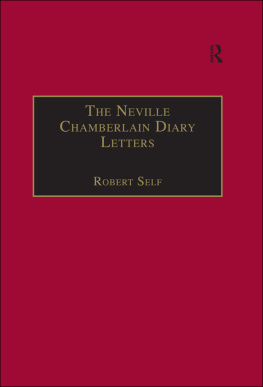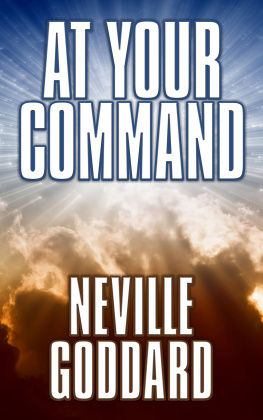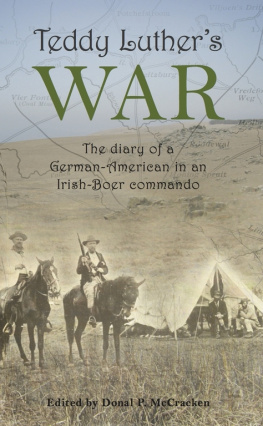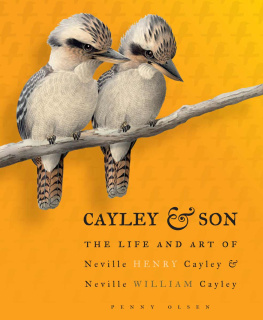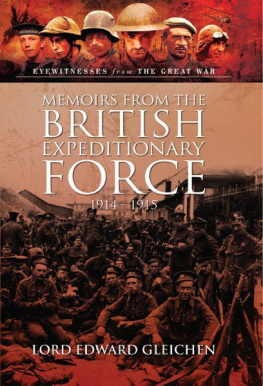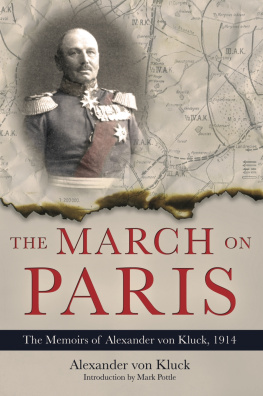This edition is published by BORODINO BOOKS www.pp-publishing.com
To join our mailing list for new titles or for issues with our books borodinobooks@gmail.com
Or on Facebook
Text originally published in 1927 under the same title.
Borodino Books 2017, all rights reserved. No part of this publication may be reproduced, stored in a retrieval system or transmitted by any means, electrical, mechanical or otherwise without the written permission of the copyright holder.
Publishers Note
Although in most cases we have retained the Authors original spelling and grammar to authentically reproduce the work of the Author and the original intent of such material, some additional notes and clarifications have been added for the modern readers benefit.
We have also made every effort to include all maps and illustrations of the original edition the limitations of formatting do not allow of including larger maps, we will upload as many of these maps as possible.
EIGHTY YEARS
SOLDIERING, POLITICS, GAMES
BY
GENERAL SIR NEVILLE LYTTELTON
G.C.B., G.C.V.O.
ILLUSTRATIONS
General Rt. Hon. Sir Neville Lyttelton, G.C.B., G.C.V.O., when Commander-in-Chief, Ireland, 19081912
The Eight Lyttelton Brothers
N. G. L. as an Ensign in Canada, 1865
N. G. L. as Brevet Colonel, 3 rd Batt. Rifle Brigade,
nd Battalion Rifle Brigade storming Boer position at Bergendaal, Transvaal, 1900
General Botha (left), en route to Vereenigen Conference, 1902, conversing with N. G. L. under Flag of Truce
Generals De Wet, Louis Botha, N. G. L., Delarey, and Lady Lyttelton at Pretoria, June, 1902
Founders Day, The Royal Hospital, 1925
Founders Day, 1926
CHAPTER IHOME
I WAS born on the 28 th October, 1845, at Hagley, the country place of the Lyttelton family in Worcestershire, the fifth child and third son in a family of twelve, eight of whom were sons, a tall lot ranging from 6 feet 3 inches to 5 feet 10 inches. {1} My father succeeded to the title while an undergraduate at Cambridge, where he had a highly distinguished career. He had been Newcastle Classical Medallist at Eton, and at Cambridge he won the Craven Scholarship, was Senior Classic and Chancellors Medallist, in both bracketed with Dr. Vaughan, afterwards Head Master of Harrow. As he was also in the University cricket eleven he may be said to have left his mark at Cambridge.
He and the famous statesman Mr. Gladstone were married on the same day, 25 th July, 1839, to the daughters of Sir Stephen Glynne of Hawarden. My mother died in 1857. The pathetic scene was unforgettable when we were summoned to her deathbed. She saw all her elder children separately, giving each one wise and tender words of loving advice. Her calmness was wonderful, though she broke down a little when the youngest child, Alfred, a magnificent baby five months old, was brought in.
I do not propose to go into details of my early surroundings, which were not particularly exciting. My earliest distinct recollection was the laying of the first stone of the Rectory by my eldest brother in August, 1849, when I was nearly three months short of four years old. He rode a small Shetland pony, Fenella by name, a local band clad in a sort of white uniform provided the music, and I distinctly remember one of the tunes they played.
From my earliest days history has always had a great attraction for me. I remember driving in the dickey of the britska, the old family carriage, seated beside my (later) brother-in-law, John Talbot, {2} and his telling me the story of Romulus and Remus. I could read by the time I was four. Seeing my interest in the story he sent me a copy of Little Arthurs History of Rome , which I remember reading to myself.
For the next two or three years my recollections are rather indistinct and blurred, except that I remember being at Brighton, St. Leonards and Rhyl, many of us often requiring sea air, though we were never seriously ill. But early in 1854 I was taken by Rowe, my fathers valet, to see the Scots Fusilier Guards, as the Scots Guards were then designated paraded before the Queen and Royal Family at Buckingham Palace on the day they started for the Crimea. I was close to the right of the line, and can see now the right-hand man, a very tall, grey-haired warriorthose were the days of life serviceand a splendid old veteran he looked. In the ranks was a Colour-Sergeant Knox, who gained a V.C. in the Crimea, and a commission in my regiment, the Rifle Brigade; and twenty years later he told me he knew that man well, and said that his name was Walker, and that in spite of his age he lasted through the campaign.
I should imagine that life at Hagley was much the same as that at many other country houses. We dwelt among our own people, we entertained our neighbours in a rather formal fashion, we knew most of the villagers, played cricket with the boys, and all our interests were local. The servants had mostly grown grey in our service, and some of them, notably Mrs. Ellis the housekeeper, remained with us for fifty years and more.
My father was a High Churchman of the earlier type, and remained so all his life; but whether he would have been attracted by the developments of later days I cannot say. He brought us up on stricter lines than prevail now, especially as regards church observance. That (inherited I presume from Evangelical days) was a realitytwo services on Sunday and one on Saints days, no games on Sunday, indoors or out, no novel-reading till after Sunday morning service, and daily family prayers. But our life was very far from being one of dismal austerity; we played games of various descriptions not only out of doors but inside, and I am afraid the furniture suffered from this freedom of action. I still remember vividly the feeling of the sharp points of the Grinling Gibbons carving against my head when fielding at indoor cricket. When he came into his inheritance my eldest brother must have realized the unwisdom of this laxity, but having been a prominent partaker himself he could not say much.
For the first eight or ten years of my life I was anything but a strong child, and in infancy in particular it was mainly due to the unremitting care of our family nurse, Grace Newman, that I grew up into an exceptionally healthy man. She brought up all twelve of us, and lived, a much loved and honoured friend, till she was a few days short of ninety.
After the death of my mother, my three elder sistersMerial, Lucy and Lavinia {3} reigned in succession till my father married again, after eleven years widowerhood; but my grandmother, Lady Lyttelton (born Lady Sarah Spencer), lived a good deal at Hagley, and kept an eye on things there. She was a very cultivated and clever woman, and her reminiscences were extraordinarily interesting. She remembered as a small child seeing Horace Walpole and Gibbon the historian at Althorp, her fathers house. {4} He was the Lord Spencer who later on was First Lord of the Admiralty, and the great Admirals of those daysHowe, Nelson, Jervis, Hood and Collingwoodwere frequent visitors at Spencer House. She told me the following anecdote of the Duke of Clarence, later on King William IV. He was on a visit to Althorp, where he attended family prayers probably for the first time in his life. He listened quietly enough for a short time when he ejaculated, A dd good institution, too.


